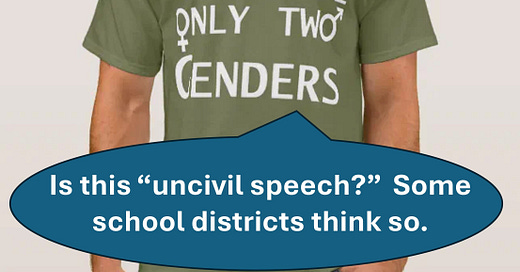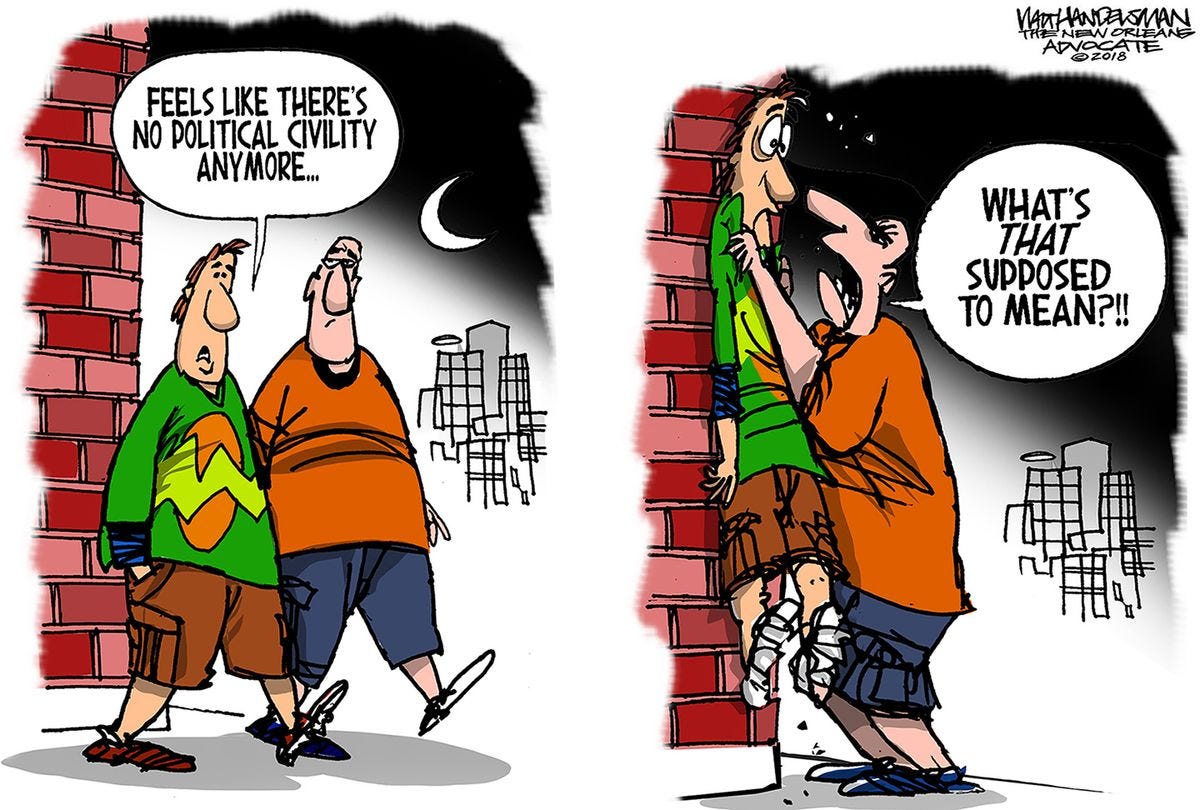Calls for more civility abound. But the language of candidates, activists, and partisans, especially on social media, gets only more crude, unpersuasive, and rank with ridicule.
Last week leaders of the Church of Jesus Christ of Latter-day Saints called on members “to be active citizens by registering, exercising their right to vote, and engaging in civic affairs, always demonstrating Christlike love and civility in political discourse.”
This statement echoes Pope Francis who in 2020 called for “a better kind of politics,” leading the U.S. Conference of Catholic Bishops to sponsor “Civilize It,” a nationwide campaign to reform political dialogue.
And last year a Southern Baptist resolution proclaimed “Christians have a clear biblical call to be ambassadors of peace in a tumultuous and fractured world where so many people are caught up in heated cultural and political discourse undermining our ability to live in peace with each other.”
These religious leaders may be united, but they are drowned out by powerful voices on the left and right of American politics determined to bury the virtue of civility.
To the activist left, overturning power structures is more urgent than being civil. To them, civility means conforming to norms, corporate rules, and societal expectations. Such institutions are pawns of the privileged, so giving in to “civility” is the same as surrender.
“It’s Time to Put Justice Over Civility” read the headline in a recent progressive publication.
But many self-styled “warriors of the right” think civility is censorship, a ploy to kill free speech. They question the civility of banning t-shirts that read “Two Genders,” by schools that routinely host LGBTQ+ events and decorate with Pride flags. “Why is one expression of value civil, and the other is not?” they ask.
But, as Inigo Montoya told Vizzini (The Princess Bride, 1987), “I don’t think that word means what you think it means.”
Civility does not replace action. It is not paralysis by analysis. Civil resolve to end injustice has a far more successful track record than violence, retribution, or hostility.
Civility can coexist with deep emotion. When present, it is universally acknowledged and obvious. There is no double standard for civility, as some conservatives fear.
Civility is not complex. It is speaking “to” a person, rather than “at” a person. Its Latin root means “after the manner of a citizen,” harkening to the dignity and respect one Roman citizen was expected to show another.
Civil discourse is speech intended to enlighten the hearer, not elevate the speaker or pander to the speaker’s tribe.
We observed this in the Vance-Walz debate. Audiences obtained a much clearer picture of the candidate’s differences. Detailed disagreement was aggressively called out, and opposing stances were strongly defended. And yet that debate was widely viewed as “civil.”
Vance could have chided Walz to “go back to Nebraska where you’re from.” Walz could have quipped back “Why don’t you return to your hillbilly roots?” Each camp would tally a “scored point” but both men would be lessened by such infantile dialogue.
Civil discourse is impactful. It coalesces majorities. It can inspire passion. It justifies deeply held beliefs. It threatens the powerful. It has toppled empires.
But most importantly, civility is essential. Without it, no self-governing Republic, especially one whose Constitution relies on “reasoning among ourselves,” can long endure.
Trent Clark of Soda Springs has served in the leadership of Idaho business, politics, workforce, and humanities education.






